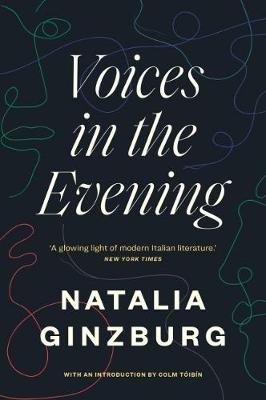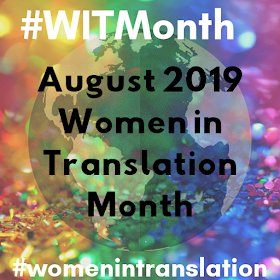
After a few contemporary books for Women in Translation Month, today I’m looking at something a little older, from 1961. Voices in the Evening is one of three (so far) works by the Italian writer Natalia Ginzburg (1916-91) that have been reissued by Daunt Books. It tells of a town’s inhabitants in the years after World War Two, in particular 27-year-old Elsa (whose mother desperately wishes to see her marry) and the De Francisci family, who own the local cloth factory.
What stays in my mind the most about Voices in the Evening is the dialogue. It starts off innocuously enough: Elsa and her mother are returning from the doctor’s, and the conversation is distinctly one-sided:
‘One can see that there is a party somewhere,’ [Elsa’s mother] added, ‘at the Terenzis’ very likely. Everyone who goes has to take something. Nowadays many people do that.’
She said, ‘But they don’t invite you, do they?’
‘They don’t invite you,’ she said, ‘because they think that you give yourself airs.…’
(translation by D.M. Low)
But, as the novel progresses, its conversations become increasingly barbed, until we have characters literally talking themselves out of their relationships:
‘Formerly,’ he said, ‘I told you everything that came into my head. Not any more, now. Now I have lost the wish to tell you things. What I think about now, I tell a little of it to myself, and then I bury it. I send it underground. Then, little by little, I shall not tell things any more even to myself. I shall drive everything underground, every random thought, before it can take shape.’
Overall, it’s as though Ginzburg is exploring the effects of the war on people’s lives at the level of dialogue, more so than the level of event. Reading Voices in the Evening is like eavesdropping on a community that’s been worn down by everything it has been through.

Book details
Voices in the Evening (1961) by Natalia Ginzburg, translated by D.M Low (1963), Daunt Books Publishing, 157 pages, paperback.
Recent Comments